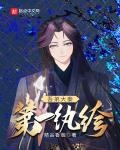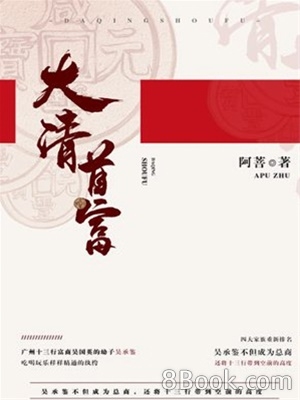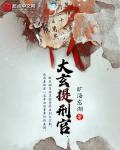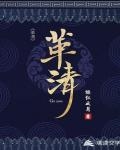Volume 5 Chapter 51: Walk and Observe (Part 1)
Emperor Zhao was reluctant to cross the river so early at first. In fact, after arriving in Luoyang and setting up a large camp in Beimang Mountain, he behaved a little strangely, basically maintaining a conservative attitude that was rarely seen before.
No one knows exactly why?
But there are always reasons, such as worrying about the chaos caused by mobilization behind him, or worrying about the logistical blockage between Luoyang and Hedong caused by the Shanzhou River. It is also possible that the official simply trusted the moral qualities and abilities of several commanders too much, as well as the combat effectiveness of his own imperial camp army.
However, after Han Shizhong showed his power three times and actually captured the Hezhong Basin (Yuncheng Basin), the two highest-ranking civil and military officials accompanying the emperor, Lu Yihao, Prime Minister Lu, and Wang Yan, President Wang, expressed their concerns about the Hedong battlefield at the same time, and then suggested that Emperor Zhao personally cross the river, rectify the situation, and restrain the generals.
According to Lu Yihao, in the current situation, although the Hezhong Basin was actually seized, generally speaking, it was nothing more than a surprise attack taking advantage of the sudden death of the third prince Erlido, the commander-in-chief of the Jin Dynasty's front line.
Using the prepared to defeat the unprepared is a result that should have resulted in this level of victory. It is not something to be proud of.
However, in the process, the generals and ministers, for their own selfish reasons, either competed for merit and advanced recklessly, or used their power to overwhelm others, or were perfunctory and timid. Among the generals at the higher level, there emerged people like Guo Zhen, who could not be thanked to the world without being killed... It can be seen that although the 300,000 soldiers in the imperial camp gradually became more combat-ready because of the grace of the court, and they also showed the confidence to march north in the clash with the Jin army, but everyone from top to bottom still could not get rid of those old ways.
This requires Emperor Zhao to take the lead and use both kindness and power.
Once Emperor Zhao himself crosses the river, no one can say how quickly he can act. However, based on his usual control over the generals and his grasp of the officers at the first level, it will at least have a deterrent effect on the high-ranking officers in the imperial camps.
In addition, let’s talk about the overall situation.
Lu Yihao's summary was still beautiful - in the current situation, since Hedong has actually captured Hezhong, the benefits brought by the death of the third prince of the Jin Dynasty have come to an end, and what lies ahead will be a tough battle and a hard fight.
At this time, the two sides were wrestling with each other, and it was just a matter of me advancing and you retreating.
At this moment, we should make every effort. In the rear, "men should fight and women should transport troops". In the front, of course, we should just follow the example of Emperor Zhaolie and advance into Hanzhong. "Why hesitate to send troops?"
This analysis was well-founded. Zhao Jiu, who was originally hesitant, was immediately persuaded by Lu Yihao. He immediately summoned civil and military officials and publicly issued an order to cross the river.
This is how the scene where the Buddha gave the monks opportunities came about.
However, although he had decided to cross the river, it was impossible for Zhao Jiu to just hang up the hot air balloon and cross the river in a small boat after seeing that the other side of the river was safe... Because he was the official of Zhao Song and the current emperor. Once he crossed the river to the north, the political and military significance would be too great to be surpassed.
This is because tens of thousands of troops have already crossed the river before, so there will be no delay.
Therefore, we must be fully prepared and take advantage of the situation to carry out sufficient political propaganda.
In this regard, no matter what, we must first put together a Northern Expedition manifesto.
The reason why I say "make up" is because this thing is simple, but also difficult... It is simple because it is just an article. The Song Dynasty has no shortage of people who can write articles. If it really doesn't work, let the group of people from the Imperial Camp Cavalry write it. When the time comes, Zhao Jiu can add a few sentences like "expel the Tartars, restore China, establish rules and regulations, and save the people", and it may be remembered as a great article by future generations.
But the difficulty lies in that the manifesto is not just a simple formal declaration of war, but also involves real political strategy.
For example, once this manifesto is written, people all over the world can read it.
When the document is presented to the rear, it should be written to tell them why the Northern Expedition is necessary and what price can be paid for the Northern Expedition.
To show it to the frontline soldiers, we need to tell them in the manifesto how many soldiers we have, what our strategic goals are, and what military disciplines and principles we must follow.
To show it to the Jin Kingdom, it was also necessary to make it clear in the manifesto who the enemy was that was being attacked. Who would not be pardoned? Who could be accepted with some limitations? Would the Khitan and Jurchen people agree with this?
What's more, these specific issues need to be divided into whether to be theoretical or practical... or simply to tell the truth or not?
Therefore, Emperor Zhao must think carefully and answer these questions seriously one by one, so that this manifesto, which is destined to appear in the official gazette and on the wooden boards in front of the military camps, can become worthy of its name.
"You need to tell all the civil and military officials and make it clear."
That afternoon, the generals and soldiers in the camp had already gone to pack their luggage, but Zhao Jiu was still sitting in the central army camp, directing Fan Zongyin, the scholar, to write this manifesto, which was either too late or too early. "If the shame of Jingkang cannot be avenged, and if the two rivers cannot be recovered, then the country has no qualifications to claim to be the Mandate of Heaven. Even if it is a small and isolated situation, the court will only be a small court. By then, I will not be qualified to be the Son of Heaven, and they will not be qualified to be Han ministers... The Northern Expedition is related to the orthodoxy of the country. If we cannot even pacify the two rivers and Yanyun, how can we claim to be the successor of the Han and Tang dynasties? Moreover, even from a personal perspective, since I have sworn an oath to the Prime Minister, I cannot pretend that I did not say those words."
Fan Zongyin, who had just started writing, was stunned for a moment.
To be honest, if he were to write about the necessity of the Northern Expedition, he could write 10,000 words in front of the mirror without taking a breath, because they are all discussions of clichés.
But even so, this official always manages to bring surprises to himself.
Glancing at Prime Minister Lu Yihao who was standing still beside him, and seeing that the prime minister had no objection, Master Fan had no choice but to pick up his pen and start a new paragraph after the beginning of the "Northern Expedition Manifesto".
"Wu Hou's "The Second Memorial to the Emperor" describes Zhaolie's ambition, saying: 'Han and thieves cannot coexist, and the king's cause cannot be half-hearted'. If the shame of Jingkang is not redeemed, I will feel ashamed every time I call myself the Son of Heaven; if the two rivers are not returned, it is also ridiculous for you to call yourself Han ministers. Therefore, the Northern Expedition is related to the foundation of the country. If we have not established a peaceful world, how dare we call ourselves the descendants of the Three Kings? If we do not inherit the territory of Han and Tang, how can we continue the rule of China?
Moreover, the sage said: A man cannot stand without trust, let alone a ruler? I swore to the world in the past that I would destroy the Jin Dynasty! There is no reason to break it. "
After writing this paragraph, I read it once. It was written in a hurry anyway, and when it was published in the court gazette, it would still have to be revised by dozens of masters in the capital. Therefore, no one paid much attention to the details. They just discussed whether to write Zong Ze's name specifically, and then skipped it immediately and continued to wait for Emperor Zhao to speak.
"To be honest, this kind of national war will not be affected by a few big words. Just say how many soldiers you have." Zhao Jiu continued to speak. "Don't forget to use the sixteen words I said before."
Fan Zongyin nodded immediately, and then immediately started writing:
"Nine years have passed since the establishment of the Jianyan Dynasty. The ruler and his subjects are one, and they tolerate each other for the sake of the country. The cycle of destiny brings progress. Now the imperial Song Dynasty has regained its strength, and its military is well-trained. We have the left, right, front, rear, center, cavalry, water, and sea troops of the imperial camp, totaling 300,000 people. We have also raised 500,000 men from the Central Plains and Guanxi. We have loyal ministers and elite soldiers, and we are so powerful that we have never seen such a grand event before! We should be brave and fight bravely, recover our homeland, drive out the barbarians, restore China, establish rules and regulations, and save the people."
"Also, since we are punishing the criminals and recovering our homeland, we must enforce strict military discipline... We should treat the common people equally, whether they are the survivors of the two rivers, the Han people of Yanyun, or the Jurchens, Khitans, Xi, Bohai, Mongols, Goryeo, Tubo, Dangxiang, or Dali. We should strictly prohibit soldiers from burning, killing, and looting..."
"I have sent troops to the north to drive out the barbarians, save the people from suffering, and restore the dignity of the Han officials. I am worried that the people are ignorant and may become my enemies. If they flee north with their families, they will be in deep trouble. Therefore, I have issued an announcement in advance: When the troops arrive, the people should not flee. My orders are strict and will not violate the slightest violation. Those who return to me will live in peace in China forever, and those who betray me will flee overseas.
He also said that the Khitan, Xi, Bohai, Mongolia, Goryeo, Tubo, Dangxiang, and Dali were all the remnants of Yanhuang, and were given titles by the Han and Tang dynasties. They were all part of China, so they should be discussed together. As for the Jurchens, although they suddenly emerged from the White Mountains and Black Waters, their roots could not be traced at the moment, but they were born in the same world, and some of them knew etiquette and were willing to be subjects, and they were not guilty, so they were raised just like the people of China.
Therefore, if any soldier commits a crime, robs or harasses the people, I will strictly enforce the law and discipline, hold them accountable , and will not tolerate it. "
"For middle-level officials and military officers, those under 30 years old will be pardoned as long as they do not resist. For middle-level officials and soldiers over 30 years old, it depends on whether they have made meritorious contributions. As for the high-ranking officials and generals of the Jin Dynasty, especially the well-known generals who participated in the Jingkang Incident in the early years, and those traitors who surrendered and held high positions, no pardon will be given..." At this point, Zhao Jiu tapped the table. "Later, I will work with Prime Minister Lu to draw up a list of war criminals and attach it to the back of the court newspaper."
Fan Zongyin understood what he meant, and then he generalized it and continued writing:
"But the hatred of nine generations cannot be forgotten, let alone the new hatred of ten years?
There are people employed by the pseudo-Jin barbarian state. If they are over thirty years old and have obviously received the grace of the Han Dynasty, they still make a fool of themselves in front of the barbarians and even forget the surnames of their Chinese ancestors. They must not be forgiven!
There are also enemy chiefs who show off their military power for a while and brutally massacre tens of thousands of people. Even if they are kings or princes, they should still be killed and their corpses should be mutilated to offer sacrifices to the Chinese and foreign people.
I am now personally commanding the six armies. I shall first take Hedong, then Hebei, and finally win a decisive victory in Yanyun, and destroy the country in Liaodong. I shall examine the roots of all groups along the way, and investigate the whole process. I shall punish the criminals or punish them according to the law. Don't say I didn't warn you! "
"His Majesty."
After finishing the article in one breath, even though he was relaxed at the beginning, Sanzhao was now breathing uncomfortably... There was no other way. By the end of the article, he had sensed the seriousness of Emperor Zhao and realized his determination. "Your Majesty, please read it."
"I won't read it anymore." Zhao Jiu pursed his lips to indicate, his face as usual. "Mr. Lu, take a look. If there's no problem, send it out. Keep another copy for tomorrow."
Lu Yihao took it, glanced at it, and directly stretched out his hand to signal to another person: "I won't read it either, Mei Xueshi...you come and take a look and polish it. If there are no omissions, then it will be reviewed by the two Yutang Xueshi and sent out directly!"
Mei Li was flattered, but how could he miss this opportunity? He hurried forward, pretended to take a look, and then handed it back to Fan Zongyin. He then bowed to Emperor Zhao, Prime Minister Lu, and Master Fan:
"The emperor is determined as iron, the minister is calm as a mountain, and the scholar's pen is as powerful as a rafter. This article is worth a hundred thousand soldiers!"
By now, everyone from top to bottom had already seen it, that is, from the emperor down, everyone had actually been impatient for a long time, and although the manifesto was good and important, it could not suppress their impatience.
Therefore, after going through the process, no one was willing to waste time.
Now that the problem of the necessary manifesto had been solved, Emperor Zhao personally issued an order for everyone to make arrangements, return to their respective positions, and wait for the next day.
They said that everyone returned to their positions and waited for the next day, but in fact, in the afternoon of that day, Li Shifu led several units of the imperial cavalry on board ships and headed upstream. They were going to land overnight at the western end of Wangwu Mountain and the eastern side of Pinglu, the easternmost end of the so-called Hezhong Basin (Yuncheng Basin), to act as a guide and provide support.
Although half of the imperial cavalry had already set out, the camp in Beimang Mountain was still working all night... because everyone knew that Emperor Zhao would cross the river tomorrow, and this also meant that, except for a few defensive troops, most of the people in this camp would follow him, cross the Yellow River, and go to Hedong on the other side of the river.
It's just a matter of one day earlier or later.
Since they had to cross the river, they had to risk their lives on this journey, so many people tossed and turned, unable to sleep that night.
However, this does not seem to include Emperor Zhao. Early the next morning, Emperor Zhao changed into a light armor, covered with a cotton military uniform, and walked out holding a sword, obviously in high spirits.
Under Prime Minister Lu and President Wang, there were Fan Zongyin, Ren Baozhong, Yu Yunwen, Mei Li, and the top 100 men in the southeast 'for consultation' as the civil officials, Yang Yi Zhong, Liu Yan, and the generals of the imperial camp's central army and cavalry as the military officials, and the imperial guards surrounding them.
But this group of people did not rush to board the ship, but first came to the rammed earth platform in the camp, and asked Scholar Fan to read the manifesto, with the assistance of Prime Minister Lu. Emperor Zhao personally offered sacrifices to Zong Ze, Wang Boyan, Zhang Shuye, Zhang Suo, Liu Qian and other important ministers who had died in the battle, to make an announcement.
After that, Emperor Zhao wanted to speak, but for some reason, he was unusually calm. He snatched the manifesto with his own hands, burned it in public, then turned around and went on board the ship himself.
The dragon banner and the two black and white yaks immediately followed, swarming around.
Zhao Guanjia, Lu Yihao and Wang Yan boarded three large ships separately. Zhao Guanjia was in the middle with a dragon flag on board, while Lu Yihao was on the left with a captured white ox flag on board, and Wang Yan was on the right with a black ox flag on board.
The close ministers, the "consultants", and the guards were also divided into three parts.
There were also the troops of Wang De, Zhang Jing and Qiao Zhongfu in the imperial camp surrounding them, some of them went ahead and some followed behind. Instead, the group led by Qu Duan and Xiahou Yuan, who were the most anxious before, fell behind.
Of course, there was a reason for this arrangement - the area of Mengzhou and Huaizhou opposite Luoyang was the southern gateway to Longde Prefecture, where the Jin army stationed its troops, and it was also the eastern exit of Chenguanxing.
Previously, the Song army had intended to land here directly and attack the Jin army at Chenguanxing. Unfortunately, considering the number of Jin troops in Longde Prefecture, in order to prevent being surrounded just after landing, the conservative Zhao emperor in Luoyang naturally rejected this idea.
However, now that Emperor Zhao has crossed the river to the north, the Jin army at Chenguanxing should be about to withdraw from here. It would be necessary to separate a part of the Eight Character Army, which is familiar with the local terrain, and advance along Chenguanxing to meet up with part of the Henan Song army here. At that time, it would block Chenguanxing at the same time and further protect Luoyang in winter.
This task fell on Fu Qing, Fan Yihong and Meng De, but Qu Duan and Liu Qi needed to lead the cavalry to stay and provide them with cover to ensure that the three of them could meet up and establish a good defense line before they could go to Hedong to gather the main force.
Of course, now is not the time to talk about the scattered arrangements of these side roads. It is just that since Emperor Zhao hurriedly boarded the boat and went upstream along the river, he finally did not have to pretend to be calm and composed as before. All kinds of thoughts came to his mind at once.
However, at this moment, he still had no intention of shouting about crossing the river, but instead began to think directly about the things in the north.
For example, before the battle, he was worried that Han Shizhong would lack the will to fight and hoped that he could cheer up. As it turned out, this guy did cheer up, but the sight of a dignified prince and marshal charging directly into the front made Zhao Jiu a little scared.
When we get to the place, we must give strict warnings.
And there is Li Yanxian.
Before the war, Zhao Jiu undoubtedly had great expectations for this general who was expected to be second in command in the country. However, his recklessness directly led to his troops suffering the heaviest losses since the war began. In addition, some of his troops, both good and bad, lost control in the north of Tieling Pass and even engaged in looting and fighting with the rebel army.
This was something Zhao Jiu particularly could not accept.
Taking into account that Li Yanxian had been defending Shanzhou for nine years, Zhao Jiu was not prepared to blame the other side for his reckless advance, but was prepared to severely deal with the military's disciplinary violations in Guanbei... To punish the criminals and punish the people without harming even a hair, is this how it is done?
What was the Northern Expedition for?
Even Ma Kuo and Wu Jie, to be honest, both performed beyond Emperor Zhao's expectations, it's just that one was good and the other was bad.
Zhao Jiu was of course prepared to execute Guo Zhen, a man under Wu Jie who had some impression of him, but he was hesitant about rewarding Ma Kuo... He really wanted to give Ma Kuo a big banner, but Wu Jie, who had a higher status and more military achievements, did not have one. It would be inappropriate to give it to Ma Kuo without Wu Jie at this time.
However, what is really important is not the specific ideas for dealing with these things, but that these things made Zhao Jiu realize directly that these generals and ministers he relied on were by no means gods. They would all have emotional fluctuations and might make mistakes. He must follow the reminders of Lu Yihao and Wang Yan, use the authority of the emperor to integrate them, form a temple calculation, and then use the temple calculation to replace the individual fights of these generals and ministers.
Han Shizhong's outstanding performance and Ma Kuo's diligence should have been directed to the decisive battle. Wu Jie's mistakes in personnel selection and Li Yanxian's reckless pursuit of merit should have been eliminated and covered up from the beginning.
That’s about it: play to your strengths and overcome your weaknesses.
When he thought of this, Zhao Jiufu thought of those two people again... Brother Liang and Zhang Heng. He had known these two people for a long time, but he inexplicably had some liking for the daring and aggressive Brother Liang, and had a little doubt about Zhang Heng.
But what is the result?
Although Brother Liang was daring and his unit was powerful, according to Ma Kuo's memorial, he was too daring. When he heard that the Northern Expedition had begun and Yue Fei was appointed as the Marshal of Hebei Road, he actually abandoned Ma Kuo's constraints and went to Daming Prefecture to look for his old master. As a result, he met Wan Hu of Elubu, a veteran general of the Jin army, and was defeated miserably.
On the contrary, Zhang Heng moved to Guji Mountain (Luliang Mountain) before the war, and not only provided a large amount of intelligence on the direction of Taiyuan to the main force of the Imperial Camp, but also did not fail at the critical moment. Although his soldiers were weak, he still dared to cross the river and defend the road, which was truly outstanding.
In addition to this person's connections in Taiyuan, I'm afraid he will continue to make contributions in the upcoming expeditions to Linfen and Taiyuan .
This is really a matter of time and fate.
"Officials!"
Just as Zhao Jiu was standing on the ship wearing a light yellow cloak and thinking deeply, suddenly, Ping Qingsheng, Tori and others beside him spoke directly, then rushed to the front and blocked the official's right side...that is, the north.
Zhao Jiu frowned for a moment, but soon he realized the situation from the flag signals of the other ships - there were Jin troops on the riverbank in the Mengzhou area north of the Yellow River.
As mentioned before, the north of the Yellow River is the enemy-occupied area, and it is also the southern gateway of the Jin army in Longde Prefecture and the eastern gate of Chenguanxing, so the presence of the Jin army is normal.
However, considering that there had been no signal from Mengjin Port, where a hot air balloon was hanging behind them, the sudden appearance of these Jin troops seemed a bit strange.
But soon, as more and more Jin troops appeared on the river bank, Yang Yizhong was the first to realize and report: "It's Oerlubu... It must be Oerlubu who withdrew from Chenguanxing! What a pity, I don't know why he retreated so slowly, otherwise what would happen if we blocked him?!"
Everyone looked again immediately and realized that the Jin army on the opposite side was also somewhat panicked and hasty, with a very disorganized military appearance, and was heading from west to east.
I'm afraid they really had just emerged from Wangwu Mountain and Taihang Mountain, and then ran into a large fleet of Song Army. They were also caught off guard, so that after occupying the river embankment, they maintained a strange silence. At this time, they were stopping on the river embankment, watching the flags and ships of Song Army by the river.
After realizing that the Jin army had not set an ambush intentionally and could not have prepared lethal weapons such as artillery carts, everyone breathed a sigh of relief and, like the Jin army, looked at each other from afar in amazement.
"So, we met on the road in a hurry?" Zhao Jiu was behind the crowd and noticed that many people who looked like generals of the Jin army climbed the river bank and looked into the distance. After a pause, he seemed to smile. "Elubu is also an acquaintance... When we discussed war criminals before, we said that he was on Huai, and he was also involved in the massacre of Nanjing (Shangqiu) after the fall of Nanjing (Shangqiu), the forced persecution of Zhang Suo, and the killing of Xin Daozong. He should also be counted as a part of the forced death of Prime Minister Zong. Before the battle of Yaoshan, he forced a crossing to Luoyang to force Prime Minister Wang and killed General Zhai... right?"
"yes."
Yang Yizhong swallowed his saliva. It was obvious that crossing the river had some psychological impact on him. "It was this beast."
"Since we are old friends, let's become close friends!"
Zhao Jiu sneered even more. "He must be looking for me... Get out of the way, let him see where I am and where I am going!"
Yang Yizhong and others estimated in their minds the distance between the center of the river and the riverbank on the opposite bank and carefully avoided it, but at the same time they signaled to the ships on the north right, asking them to accelerate and decelerate appropriately like the large ship under their feet, so as to provide as much cover and defense as possible.
Of course, the Jin army on the other side did not attempt to attack.
In fact, when the soldiers beside Zhao Jiu dispersed slightly, not only Elubu, but almost all the Jin soldiers quickly realized who was the person who was surrounded by people, wearing a cloak, and looking here on the big ship with a dragon flag.
Thousands of Jin soldiers, exhausted and bewildered, stared blankly at the dragon flag on the ship and the figures under it, without saying a word.
Of course, Erlubu was among them. He once raised his hand to bend his bow, hoping to get lucky, but he finally laughed at himself and gave up. In the end, this veteran general of the Jin army, like all his subordinates, looked at the Jinwu banner and the figure under it with an indescribable expression, with a trace of fatigue. He said nothing and watched the huge fleet go upstream and finally disappear from sight.
Just like that, in the evening of that day, Zhao Jiu was in Yuanqu on the other side of Wangwu Mountain, and was greeted by Li Shifu, and he calmly reached the land of Hedong.
This day was October 18th, in the winter of the ninth year of Jianyan.






